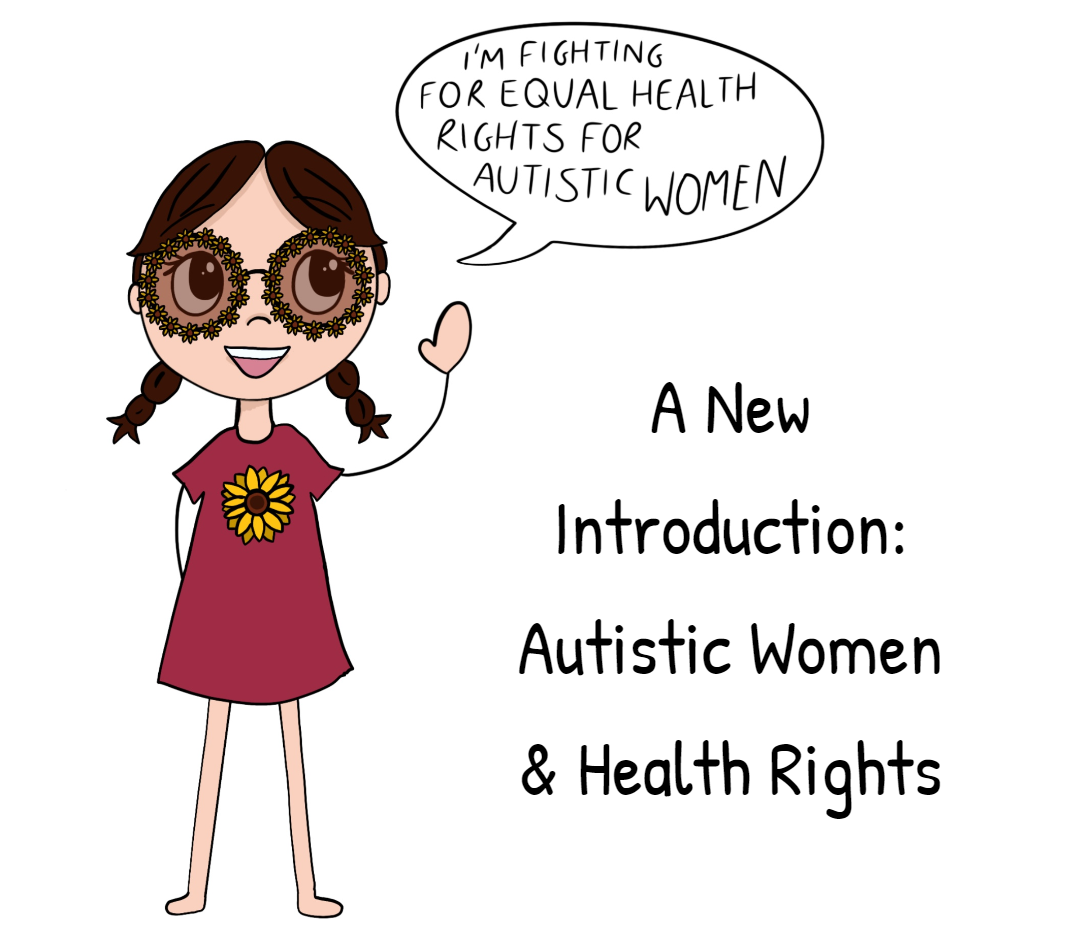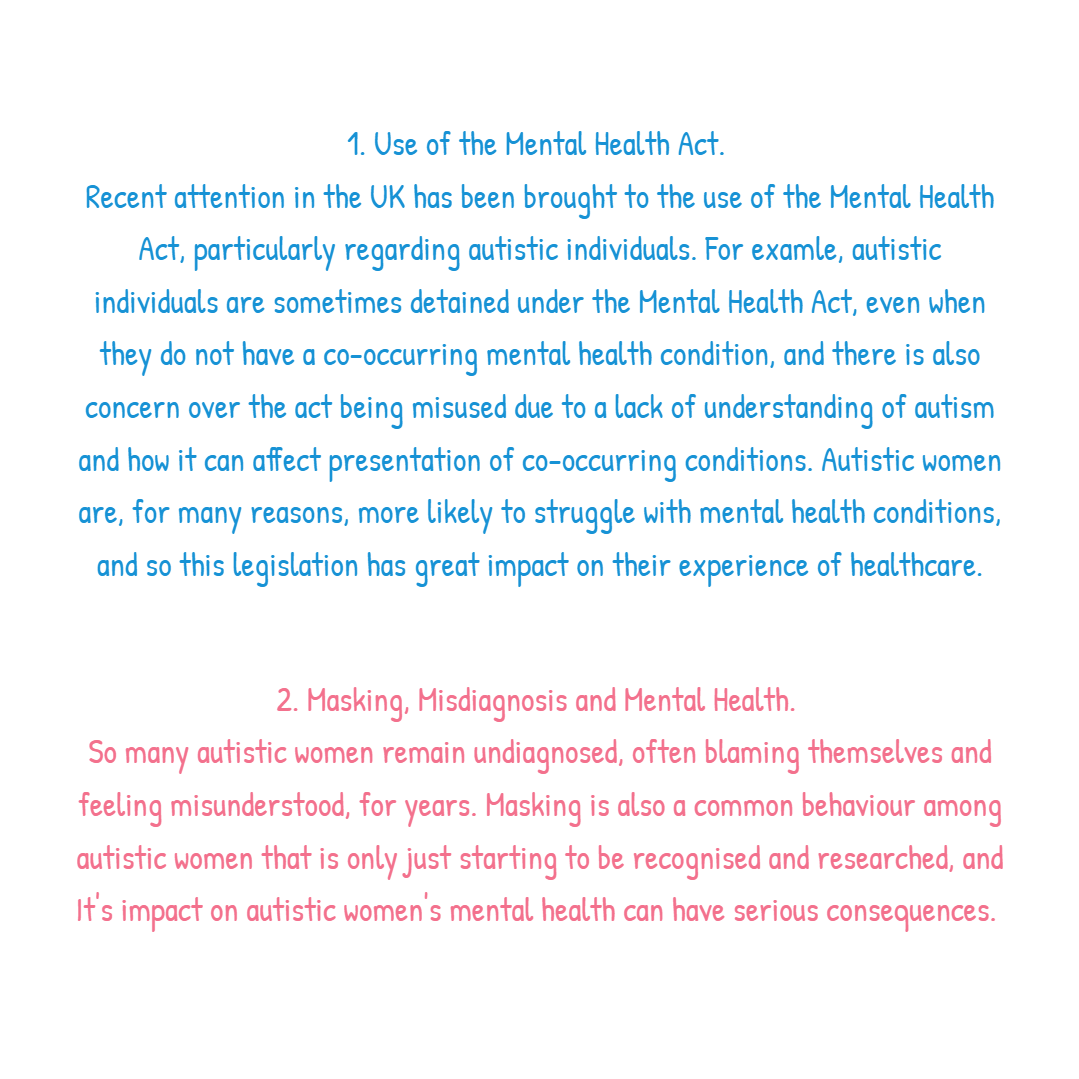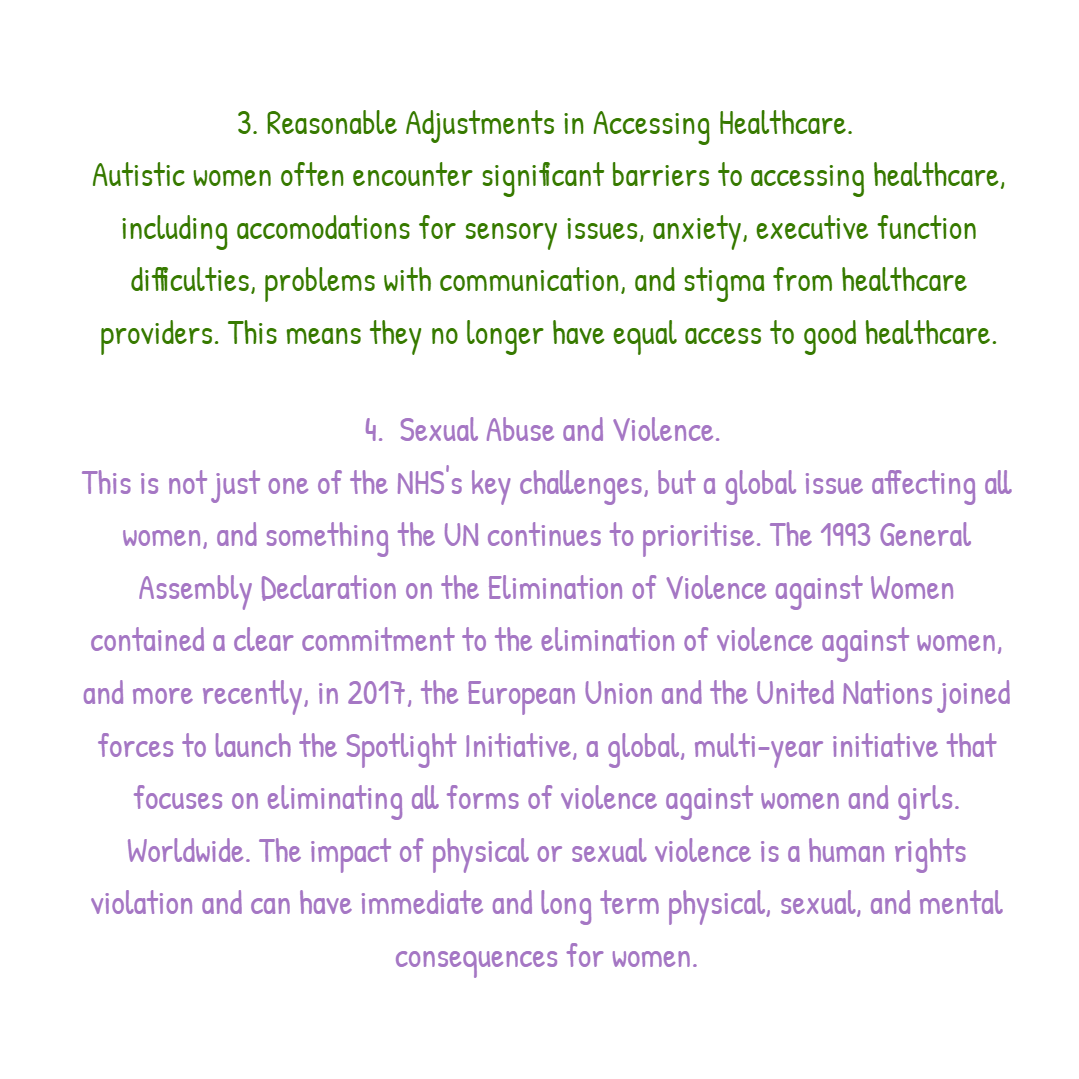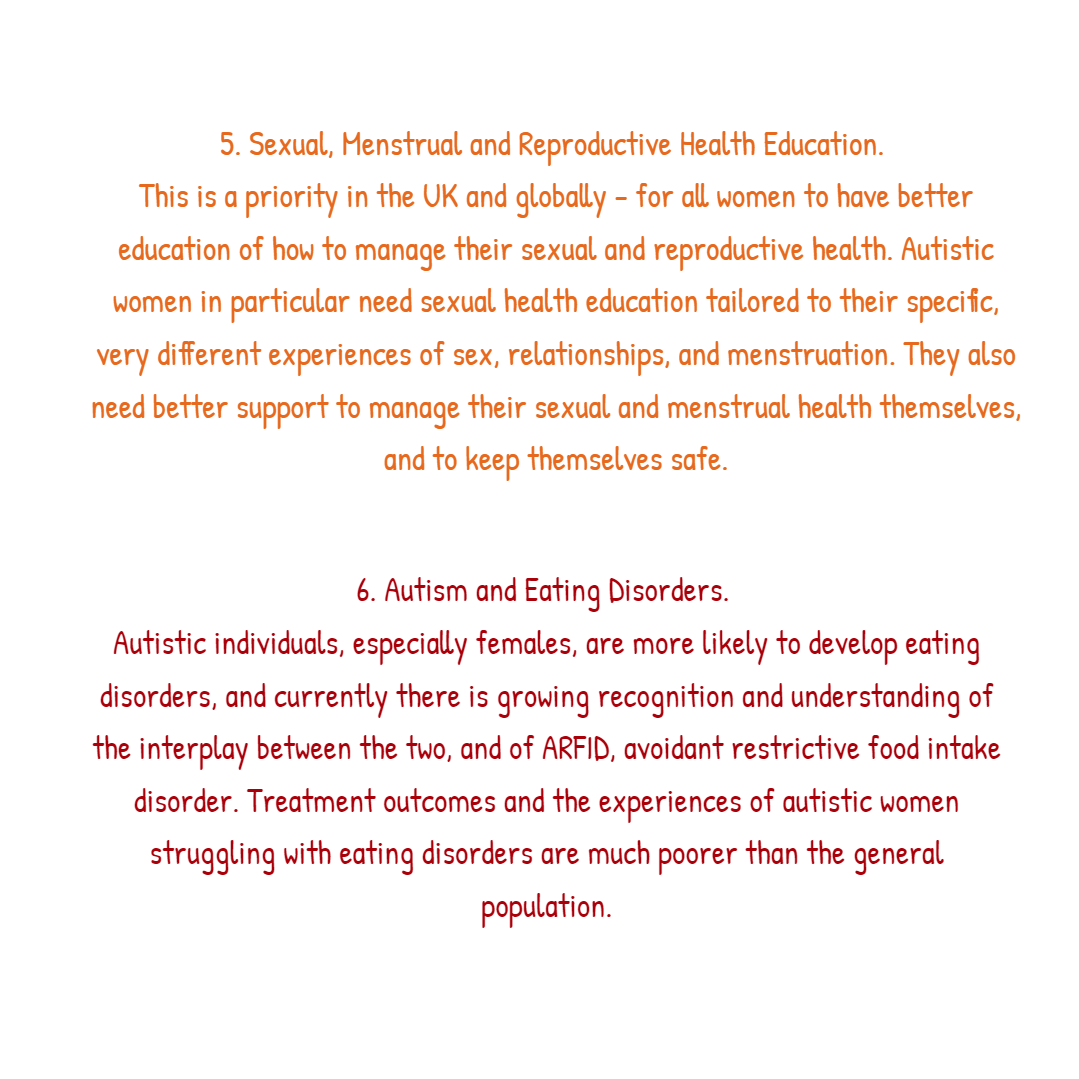I am using this post partly to announce a bit of a shift in my content. My dream is for a world where autistic women globally have equal health rights and live free from gender violence and discrimination, but this is not something I have directly addressed in my advocacy work so far. I’ve been on a personal journey of recovery, and I’m still not yet ready to fully share my story, but 6 years ago I was sexually abused. What happened to me greatly changed how my mental health and eating disorder presented, and changed the course of my life, and up until now, it’s not something I’ve spoken about openly. But, I want to make a difference. I want to make sure other autistic women are protected, and that, when they do need support from the healthcare system, whether that’s following abuse, or for their mental health more generally, or for physical health concerns – they get the care and help they deserve.
It is my mission in life to fight for autistic womens health rights, and so I’m going to be making that more of the focus of my advocacy work. I might still blog about other autism things too, but it’s time for me to let my fear of speaking about this get in the way, and to begin my activism journey.
While there is no way I can begin to comprehensively cover all the issues out there, I want to share some of those that I am particularly passionate about, as I begin my activism journey:
– Use of the Mental Health Act. Recent attention in the UK has been brought to the use of the Mental Health Act, particularly regarding autistic individuals. For examle, autistic individuals are sometimes detained under the Mental Health Act, even when they do not have a co-occurring mental health condition, and there is also concern over the act being misused due to a lack of understanding of autism and how it can affect presentation of co-occurring conditions. Autistic women are, for many reasons, more likely to struggle with mental health conditions, and so this legislation has great impact on their experience of healthcare.
– Presence in Research. Historically, autism research, and healthcare research, have focused predominantly on males. The underrepresentation of autistic women in research means that the findings and recommendations derived from such studies may not accurately reflect the experiences or needs of women.
– Autism and Eating Disorders. Autistic individuals, especially females, are more likely to develop eating disorders, and currently there is growing recognition and understanding of the interplay between the two, and of ARFID, avoidant restrictive food intake disorder. Treatment outcomes and the experiences of autistic women struggling with eating disorders are much poorer than the general population.
– Reasonable Adjustments in Accessing Healthcare. Autistic women often encounter significant barriers to accessing healthcare, including accomodations for sensory issues, anxiety, executive function difficulties, problems with communication, and stigma from healthcare providers. This means they no longer have equal access to good healthcare.
– Masking and Mental Health. Masking is a common behaviour among autistic women that is only just starting to be recognised, researched and understood. It’s impact on autistic women’s mental health can have serious consequences, and so it’s something that really needs fighting.
– Sexual, Menstrual and Reproductive Health Education. This is a priority in the UK and globally – for all women to have better education of how to manage their sexual and reproductive health. Autistic women in particular need sexual health education tailored to their specific, very different experiences of sex, relationships, and menstruation. They also need better support to manage their sexual and menstrual health themselves, and to keep themselves safe.
– Sexual Abuse and Violence. This is not just one of the NHS’s key challenges, but a global issue affecting all women, and something the UN continues to prioritise. The 1993 General Assembly Declaration on the Elimination of Violence against Women contained a clear commitment to the elimination of violence against women, and more recently, in 2017, the European Union and the United Nations joined forces to launch the Spotlight Initiative, a global, multi-year initiative that focuses on eliminating all forms of violence against women and girls. Worldwide. The impact of physical or sexual violence is a human rights violation and can have immediate and long term physical, sexual, and mental consequences for women.
I will be doing a little series of blog posts about human rights and health rights, to introduce these topics more, so if you’re interested, look out for those! And if you want to talk about any of these, or anything else – please do contact me. I’m here to listen, learn, and make change.




Leave a Reply